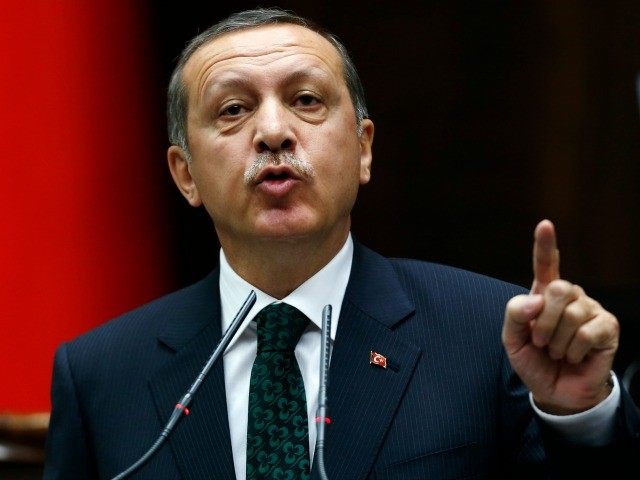The Armenian genocide is a very sensitive subject with Turkey, as it prefers to think of that horrendous century-old bloodbath as a military clash with the Ottoman Empire, which the Armenians lost very badly–badly enough to kill about 1.5 million of the 2 million Christian Armenians living in the Ottoman Empire at the time, to be specific.
Many historians regard this as the first, but sadly not the last, mass extermination effort to roll from the twentieth century’s assembly line of horrors. The Turks adamantly refuse to acknowledge what happened to the Armenians was a planned genocide, on par with subsequent mass killings. They have also denied the magnitude of the massacre, insisting that the generally accepted figure of 1.5 million deaths is exaggerated. The Turks sometimes portray discussion of the Armenian genocide as a political attack on the legitimacy of the modern Turkish government.
The surviving Armenians and their descendants have “passed one whole century screaming to the world that this happened,” as Gaffur Turkay, the grandson of a genocide survivor, put it to The New York Times. Turkay speaks of young Armenians looking to rediscover its heritage, a task made more difficult if the Turkish government leads a substantial portion of the Middle East–and others around the world–in denying what happened to their grandparents. He personally was raised Muslim, but he recently discovered and embraced his Armenian identity and converted to Christianity. “We want to be part of this country with our original identities, just as we were a century ago,” he said of his generation.
This week brought the 100th anniversary of the event, which began on April 15, 1915. The European Union, which Turkey aspires to join, overwhelmingly approved a motion on Wednesday describing the Armenian massacre as “genocide.”
Pope Francis also used the term when he described what befell the Armenians as “the first genocide of the twentieth century,” and he called upon the entire international community to unambiguously acknowledge it as such. He said official recognition was important because “concealing or denying evil is like allowing a wound to keep bleeding without bandaging it.”
CBS News notes that the Pope has close ties to the Armenian community in his native Argentina. His pronouncement was welcomed by the Armenian Apostolic Church, whose leader, Catholicos Aram I, said international law clearly states “condemnation, recognition, and reparation of a genocide are closely interconnected.” He also declared that denying the Armenian cause would be a “violation of justice” and a “sin against God.”
The Turkish government and its Islamist president, Recep Tayyip Erdogan, did not take any of this well. Both the European Union and a previous Pope, John Paul II, have formally acknowledged the Armenian genocide in the past, but the significance of the centenary is not lost on anyone involved. The Vatican has been trying to maintain good relations with Turkey, due in part to concerns over the current persecution of Christians by Muslim extremists like ISIS, but Pope Francis still spoke out at an Armenian Mass observing the 100th anniversary of the massacre. He knew he would be heard clearly in Ankara.
After the Pope’s declaration, Turkey canceled a news conference at the Holy See and sent Prime Minister Ahmet Davutoglu out to declare, “We won’t allow our nation to be insulted through history, we won’t allow Turkey to be blackmailed through historic disputes.” He described the EU and Pope Francis as part of an “evil front” that was hatching “plots” against Turkey.
President Recep Tayyip Erdogan wanted credit for allowing Armenians to remain in Turkey at all:
There are 100,000 Armenians who are either Turkish citizens or not citizens in my country. Have they been submitted to any different treatment? They benefit from all kinds of opportunities. We could deport them, but we don’t. They are guests in our country.
That’s part of the problem: the Armenians do not want to be seen as “guests” whose “privileges” could be revoked at any moment. The previous revocation was very forceful, even if one accepts the heavily edited version of history Turkey prefers.
Erdogan declared that Turkey would simply refuse to acknowledge the recognition of Armenian genocide by the European Union, Pope Francis, and anyone else who choose to join them. “Whatever decision they take, it will go in one ear and out there,” he warned. “It is not possible for the Turkish Republic to accept such a sin, such a crime.”

COMMENTS
Please let us know if you're having issues with commenting.